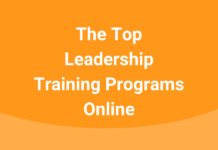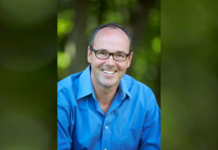
Warren Buffett is arguably the greatest investor of all time. His net worth exceeds $75 billion. His company, Berkshire Hathaway, is the third largest public company in the world. But when asked to name his single greatest investment, the “Oracle of Omaha” had a surprising answer:
Himself.
Reflecting on his career in Forbes’ commemorative 100th anniversary issue, Buffett stressed the importance of seeking opportunities for personal growth.
“Address whatever you feel your weaknesses are,” the legendary investor said. “And do it now.”
Buffett recalled an early moment in his career that not only transformed his work but everything around it.
“I was terrified of public speaking when I was young. I couldn’t do it. It cost me $100 to take a Dale Carnegie course, and it changed my life. I got so confident about my new ability, I proposed to my wife during the middle of the course.”
A single investment produced a lifetime of return.
But unlike other investments that can go sideways or disappear overnight, Buffett pointed out that no one can take away the knowledge and skills we accumulate over time.
“If you can increase your potential 10%, 20% or 30% by enhancing your talents, they can’t tax it away. Inflation can’t take it from you. You have it the rest of your life.”
Here are three ways to start investing in yourself right now:
Have a beginner’s mind. Zen master Shunryu Suzuki once remarked, “In the beginner’s mind there are many possibilities, but in the expert’s there are few.” The moment we start thinking of ourselves as finished products, we’re finished. To grow and evolve, we need to imagine ourselves as beginners. Beginners listen more than they talk. They are naturally curious and inquisitive, but are interested in learning from everyone, including those who might be younger or have less experience. When we give ourselves permission to learn with zest, wonder and humility, there is no limit to human potential.
Stretch your boundaries. Too often, people remain stuck inside learning silos, limiting their interaction to familiar people and practices. Pushing into the unknown is a powerful way to expand our knowledge borders and create new frontiers. I experienced this firsthand while researching and writing my book, The Feedback Fix. I deliberately reached outside the education sector, where I’ve spent considerable time, to learn as much as I could from executive coaches, HR professionals, and corporate leaders. Their stories and strategies enriched my reporting and sharpened the book’s overall message. There’s even some fascinating research that highlights the benefits of adopting an “attainment” approach to personal growth: The people who are willing to break the mold are more likely to reach for and achieve personal goals. It requires a healthy tolerance for the unfamiliar, but the payoff is huge.
Listen to your own voice. No one knows you like you. As our lives become noisier, it’s more crucial than ever to set aside time for reflection and self-tuning. What are our growth priorities? Where are we falling short? Engaging in self-talk can help, too: from making managers more effective to improving the performance of elite sprinters and dart throwers, self-talk can clear aside the clutter of our everyday grind and provide quiet moments for enlightened introspection. You can’t plant for growth unless you know where to lay seeds.
Joe Hirsch (@joemhirsch) is the managing director of Semaca Partners, a boutique communications firm, and the author of “The Feedback Fix” (Rowman & Littlefield, 2017). Connect with him at www.joehirsch.me.





